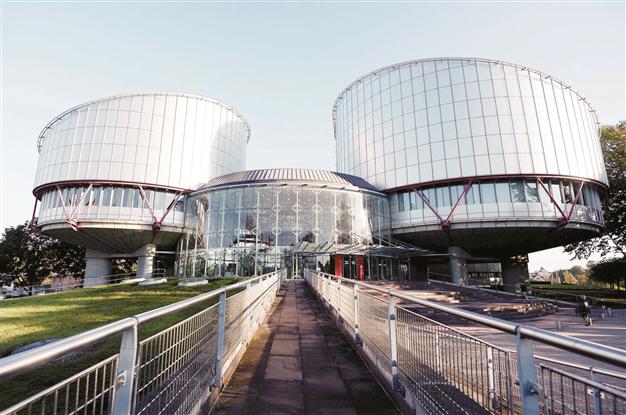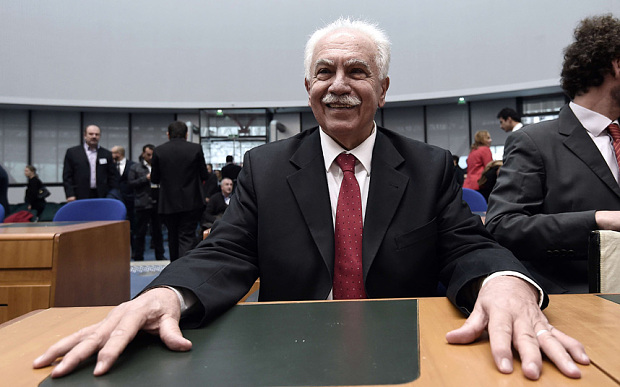Sévane Garibian: “The polarization in Grand Chamber is important”


What are the outstanding assessments in the ECHR’s decision?
The reason why the Court concluded that there was a violation of freedom of expression in this specific case is because it placed the emphasis on the fact that it was not necessary to subject Mr. Perinçek to a criminal penalty in order to protect the rights and dignity of the Armenians. This lack of necessity was implied, here, from the lack of evidence of incitement to racial hatred and discrimination in DoguPerinçek’s statements, analyzed in their context in Switzerland. The Court’s argumentation on this point is the following. First, the Court considered that “it had not been argued that there was a direct link between Switzerland and the events that took place in the Ottoman Empire in 1915 and the following years”. Second, it said that there was no evidence showing that the atmosphere in Switzerland was tense and could have resulted in conflicts between Turks and Armenians there, at the time when Mr. Perinçek made his speeches. Third, in the Court’s opinion, the amount of time that has elapsed since the events in the Ottoman Empire implied that the applicant’s statements “could not be seen as having the significantly upsetting effect sought to be attributed to them”. Last but not least, the Court differentiated this case from the cases of Holocaust denial where it had invariably presumed that denialist statements could be seen as a form of incitement to racial hatred. So the Court created a kind of automatic presumption in the latter cases. With regard to the Holocaust, I quote, “the justification for making its denial a criminal offense lay in the fact that such denial, in the historical context of the States concerned, even if dressed up as impartial historical research, had to be considered as implying anti-democratic ideology and anti-Semitism”. Each one of these assessments is questionable both from a legal and philosophical point of view.
 Photo: Demir Sönmez
Photo: Demir Sönmez
The presumption related to Holocaust denial is debatable: can such an automatic presumption be justified by historical and contextual reasons without creating a problematic inequality of treatment, a double standard? As for the temporal factor, what about Holocaust denial in 40 years? Would the aforementioned automatic presumption still be valid? And regarding the direct geographical and historical link mentioned before: what about, for instance, the potential negation of the Rwandan genocide in European States that criminalize the denial of all genocides, like Switzerland, Liechtenstein, Luxembourg, Slovenia etc.?
Is there anything you would add regarding this comparison?
I should add two things. First, there is an interesting point in the Court’s argumentation related to the specificity of Holocaust denial in Europe: it said that its criminalization is justified by the “historical context of the States concerned”, and not so much by the fact that the Holocaust constitutes a clearly established historical fact. In that, the Grand Chamber clearly departed from the Chamber’s interpretation given in the 2013 judgment. Second, the Court acknowledged the diversity of national positions among the member States regarding the legislation on the denial of historical events: the spectrum is indeed very wide and relates, after all, to the margin of appreciation and sovereign competence of each State. Some of them do not criminalize it at all, some others criminalize exclusively the denial of the Holocaust or the denial of Nazi and communist crimes, when some criminalize the denial of every genocide.
The Grand Chamber’s ruling was given by the majority of 10 judges against 7. There is a difference of opinion. What do you think about this?
The polarization is important indeed, and expresses a strong dissension within the Court. The judgment is long (139 pages in its French version) and comprises number of separate opinions: a partly concurring and partly dissenting opinion by the German judge; a joint dissenting opinion by seven judges, including the President and Vice-President of the Court respectively from Luxembourg and Andorra (the five other judges are from Monaco, Malta, Greece, the Netherlands and Lithuania); and an additional dissenting opinion by the Dutch judge, joined by his colleagues from Andorra, Monaco and Lithuania. One can sense that the short majority wasn’t easy to obtain in this emblematic case, which gave the Grand Chamber the chance to rule on the denial of genocide and mass crimes for the first time.
Could you elaborate on the reasons of the polarization within the Grand Chamber?
The causes of this polarization are to be found in my previous explanations. The dissenting judges flatly criticized and challenged the Court’s assessments regarding: 1. the appreciation of the nature of DoguPerinçek’s statements; 2. the evaluation of the racist motive in the light of the specific context (itself being determined by debatable factors); 3. and the differentiation in principle with the Holocaust denial. Some of them – the authors of the additional dissenting opinion–also considered that article 17 of the European Convention, which prohibits the “abuse of rights”, should have been appliedto this case. The abuse of rights is a situation where an applicant takes advantage of his or her right(s) with the aim of defending and promoting anti-democratic values, contrary to those protected by the Convention. In any case, the biggest issue at stake here was the evaluation of Mr. Perinçek’s statements in the light of their context and the margin of appreciation of the Swiss authorities.
Also, in their joint dissenting opinion, seven judges, while confirming rightly that the legal characterization of the extermination of the Armenians was not the question here, noted the “decidedly timid approach” of the Court. They then firmly asserted:“the fact the massacres and deportations suffered by the Armenian people constituted genocide is self-evident. The Armenian genocide is a clearly established historical fact. To deny it is to deny the obvious”.
 How will this ruling affect the fight against discrimination and hate speech?
How will this ruling affect the fight against discrimination and hate speech?
This judgment confirms the importance and the need of the evidence of incitement to racial hatred and discrimination through the litigious statements, analyzed in their specific context, for the criminalization of the denial of historical events. This element is not new though, but its assessment is, as we see in this case, quite relative and subjective. Let me recall that eleven third-parties had been given leave to intervene in the procedure and only two of them were defending DoguPerinçek in this case: the Turkish Government and the Federation of the Turkish Associations of French-speaking Switzerland. Among the nine others, there was notably: the Turkish Human Rights Association, the Truth Justice Memory Centre and the International Institute for Genocide and Human Rights Studies; the International Federation for Human Rights; the International League against Racism and Anti-Semitism; and a group of French and Belgian academics.
The court considered Switzerland’s context during the decision process. However, in the decision, it didn’t ignore Turkey’s context. What do you think about this aspect of the judgement?
The way the Court addressed, much too quickly, the Turkish context is also questionable. One may consider that the situation in Turkey is the part of a wider context, which had to be examined in the assessment of Mr. Perinçek’s statements regarding the racist and discriminatory motive. This was, indeed, one of the arguments raised by the Turkish Human Rights Association, the Truth Justice Memory Centre and the International Institute for Genocide and Human Rights Studies (a coalition).
In doing so, the coalition referred to materials taken, inter alia, from the Ergenekon proceedings. It also referred to DoguPerinçek’s leadership of the Talaat Pasha Committee, which was condemned by the European Parliament as “xenophobic and racist” in 2006. Nevertheless, the Court did not take the materials into account, notably because the coalition did not produce their“originals or full translations (…), instead selectively quoting from them”. The Grand Chamber recognized that “the hostility of some ultranationalist circles in Turkey towards the Armenians in that country could not be denied” (referring notably to the Hrant Dink case). But it did not link this situation to the present case, considering that it could hardly be regarded as a result of the applicant’s statements in Switzerland.As for the affiliation with Talaat Pasha Committee, the Court said that “the Swiss courts did not elaborate on this point, and there is no evidence that the applicant’s membership in the so-called Talaat Pasha Committee was driven by a wish to vilify the Armenians and spread hatred for them”…
Lastly, and very surprisingly, the Court used its own judgments of violation of freedom of expression in cases brought by Mr. Perinçek against Turkey (in 1998 and 2005), as a means of refusing to portray him as “an extremist wont to exercise his right (…) in an irresponsible and dangerous manner”.


